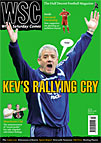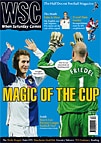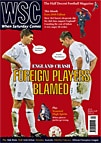 Relegation to League One, administration, Kevin Blackwell – Luton and Leeds share quite a lot. So why not add the points, too, when the teams meet at a packed-out if still fairly charmless Kenilworth Road, asks Neil Rose
Relegation to League One, administration, Kevin Blackwell – Luton and Leeds share quite a lot. So why not add the points, too, when the teams meet at a packed-out if still fairly charmless Kenilworth Road, asks Neil Rose
There is something exciting about having Leeds United in town. Irritating though the whole concept of clubs being “big” or “small” is, there is no denying that Leeds have an aura about them. It’s an aura that attracts by far the largest league crowd of the season to Luton, as well as more police than every other home game combined. It generates an edgy atmosphere at times, punctuated by the odd, quickly subdued fight at both ends.

